In 2023, there were around 450,000 law firms in the United States. Between 2018 and 2023, the average number grew by approximately 0.7 percent yearly.
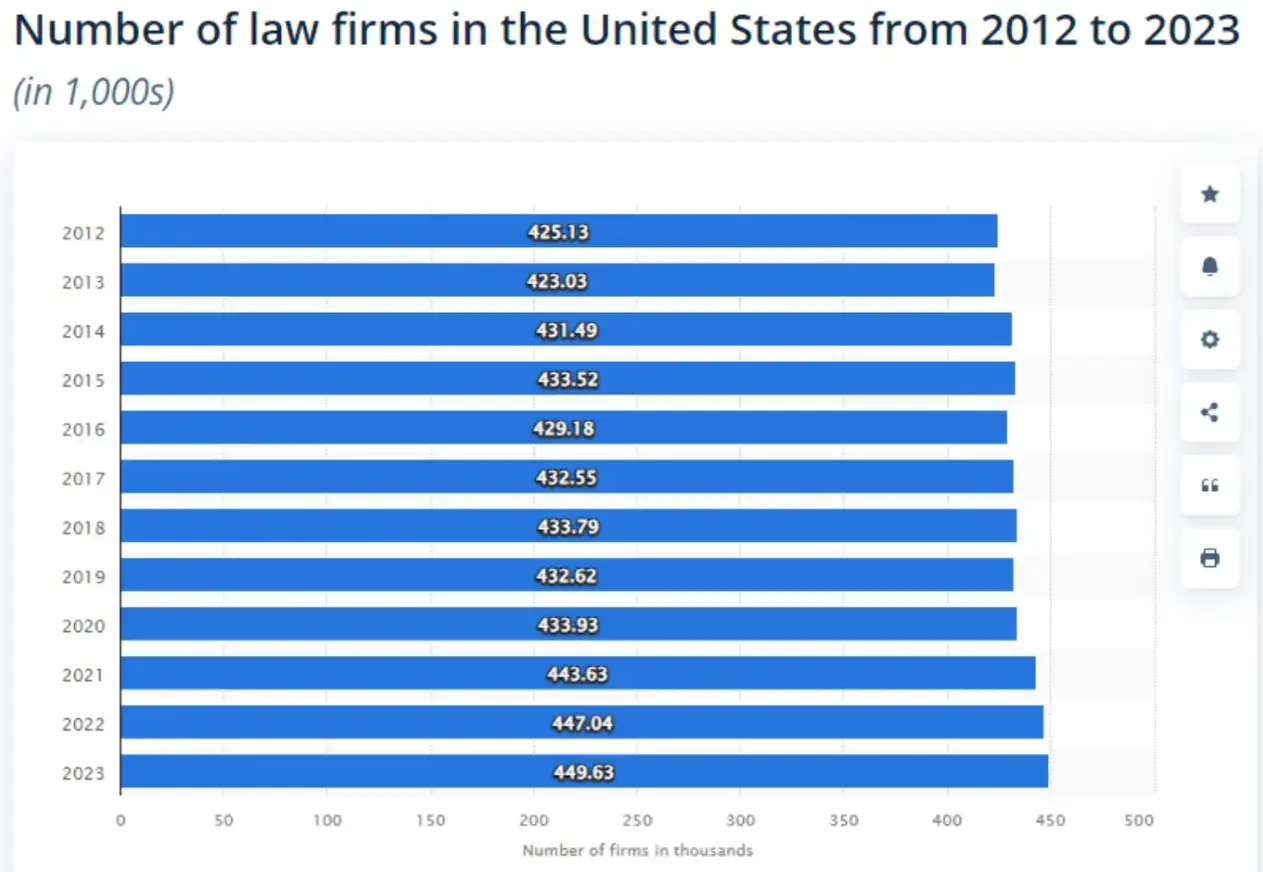
With the continuous growth of legal services in the U.S., it can be challenging for law firms to stand out. You’re also less likely to engage and attract prospective clients without significant online and offline presence.
In these rapidly changing digital advancements, having a website has become increasingly paramount to law firms.
Your website contains information about your law firm, including staff and contact information. It helps create an online presence and makes you accessible to clients.
Besides these factors, here are other reasons to invest in a good website:
Establish a Positive First Impression and Professional Image
Your website is the first contact point for many prospective clients, making it their first impression of your law firm.
With a visually appealing and authoritative site, you can leave a positive first impression and instill confidence in your firm’s expertise. It showcases your professionalism and dedication to providing top-notch legal services.
Here’s an example of a professional legal website design:
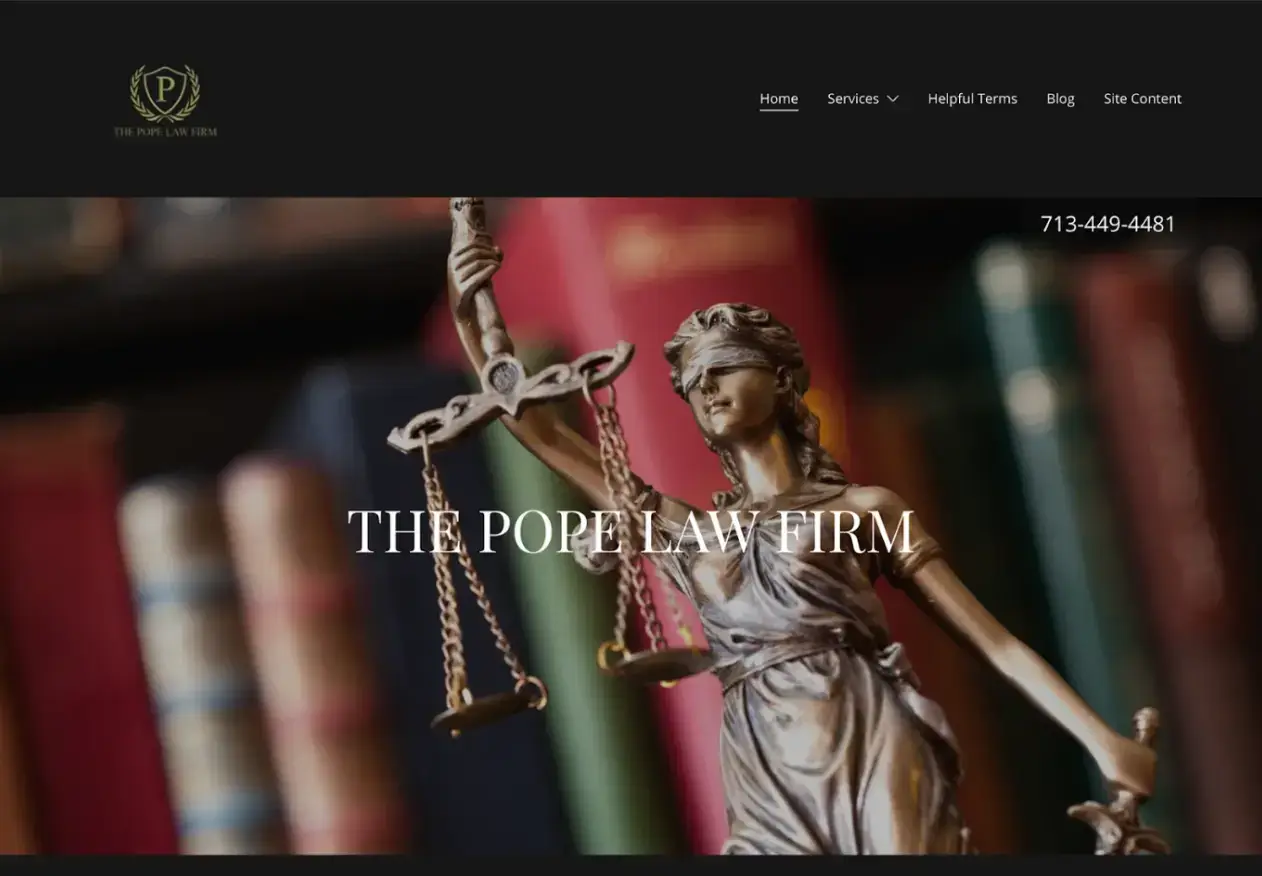
Amplify Online Presence
Adding a website to your digital marketing channels can amplify your online presence. With most prospects turning to the Internet for answers and to find services, getting the highly coveted top recommendation can increase your brand awareness.
Your website provides a central platform for your brand, enabling you to publish in-depth content, such as detailed legal articles. These types of content can be your existing and prospective clients’ go-to resources when needed.
Thus, your website can appear at the top of search results when users search for legal services relevant to your practice areas, increasing your chances of client acquisition.
Showcase Expertise, Successes, and Practice Areas
Your website is an opportunity to showcase your expertise, successes, and practice areas. You can exhibit your knowledge, experience, and track record through case studies, testimonials, and informative content.
This information helps potential clients understand your specializations and find reasons to choose your law firm over competitors.
Here’s an example of a legal website homepage showcasing expertise:

Accessibility and Direct Communication
Unlike brick-and-mortar offices, websites provide 24/7 access to law firms.
Potential clients can visit your site, browse your practice areas, read about your lawyers, send inquiries, and contact you for appointment scheduling at their convenience.
If you’re unavailable to answer prospects’ queries, your chat support can send messages informing them you’ll respond once online. It can even let visitors choose which actions they want to proceed to.
For example, a prospect can opt to read your FAQs or wait for a live agent’s response. This direct communication helps reduce time wastage and engage a broader audience who require legal assistance.
Below is an example of a website chat support:
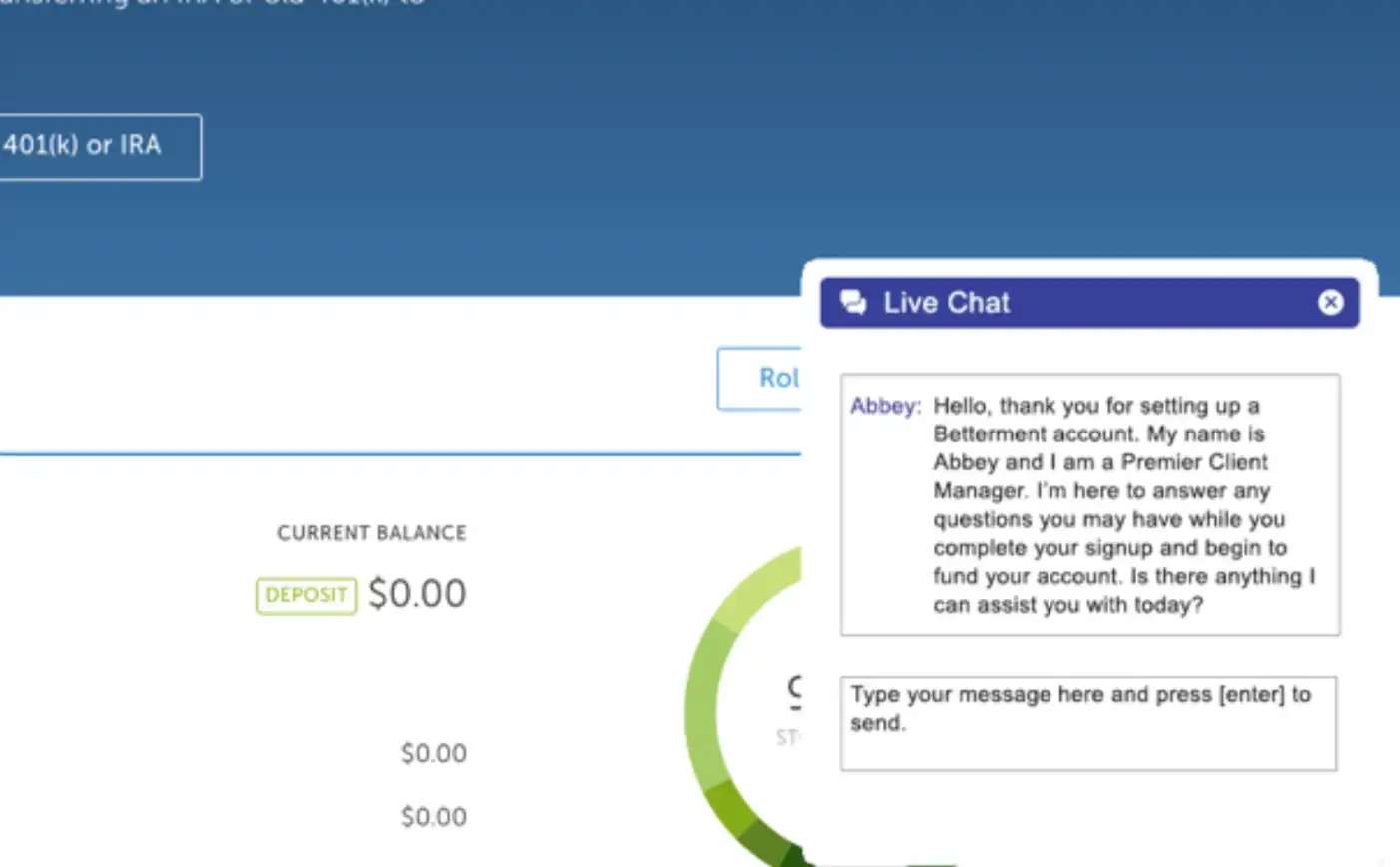
Build Trust, Authority, and Credibility
Your website helps build trust, authority, and credibility.
By providing compelling and valuable information, answering common legal queries, and providing educational resources, you can position your firm as a reputable source of legal expertise.
Moreover, highlighting authoritative client testimonials, awards, and accreditations helps strengthen your credibility, reassuring prospects that they’ll be in capable hands.
Stay Ahead of the Digital Landscape
Digital advancements propel businesses to adapt to the rapidly changing market trends and consumer needs.
Without keeping abreast of these developments, your law firm may fall behind due to missed opportunities, a lack of scalability, and a negative reputation.
As such, a well-crafted website empowers you to leverage opportunities to showcase your expertise and services. Its scalable nature accommodates growth by adding new services, lawyers, and resources without significant physical expansions.
Moreover, it can counteract negative perceptions by providing a platform for case studies and success stories to reinforce your firm’s consistency and reliability.
Including homepage elements that highlight your firm's specializations and successful cases is key.
Law firms like SalviLaw leverage this technique to ensure their website effectively showcases expertise and differentiates itself from the rest, which resonates with potential clients.
Core Elements of a Good Legal Website
A robust legal website encompasses the following elements:
-
Engaging, intuitive, and professional design
Besides visual appeal, an engaging, intuitive, and professional design is imperative for the following reasons:
-
- Engaging – Your website must be enticing enough for visitors to spend time on. Prospects must also be active participants who interact with the site rather than being passive readers.
- Intuitive – Visitors must navigate your site with minimal effort. It includes a well-organized menu and visible call-to-action buttons to guide them towards the next steps.
- Professional – Visitors must perceive your authority as a law firm when they enter the homepage.
-
Mobile responsiveness
Mobile responsiveness is paramount to legal websites.
Mobile responsiveness means your website can adapt its layout based on the device size. For instance, when users transition from desktops to smartphones, your site must respond to their mobile screens.
This design helps ensure a positive user experience for visitors primarily using their mobile devices for browsing and research. Here’s an illustration of a mobile responsive website:

-
Compelling legal content
Compelling legal content demonstrates and validates your law firm’s knowledge and expertise, enticing first-time visitors and encouraging repeat business. Examples of compelling legal content include:
-
- Thought leadership pieces
- Commentaries
- Blogs
- Knowledge and informative articles
- Newsletters
- Legal news and updates
- Videos
- Podcast
-
Staff directory
The staff directory provides all the contact information a prospect needs to reach a lawyer. Since legal services are people-centered, your website must also reflect and certify your staff’s expertise.
When creating your staff directory, remember the following tips:
-
- Include professional photographs where lawyers convey their approachability
- Credentials of the staff
- Contact information (email and telephone or phone number)
- Include tags relevant to the staff’s practice areas, specializations, and sector experience
Here’s an example of a privacy policy on Uber’s website:
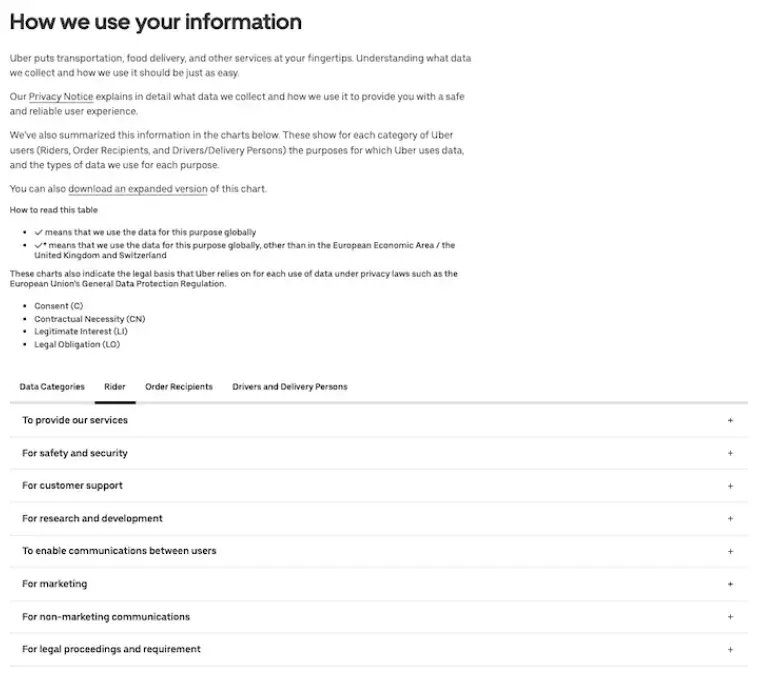
-
Legal and regulatory statements
Legal and regulatory statements like privacy policies are essential to a website. On legal websites, these notices are crucial in ensuring that law firms comply with the law. Some examples include:
-
- Terms and conditions relating to the use of your site
- Data privacy statements
- Notices relating to your firm’s legal status, services, insurance, and complaints procedure
- Accessibility statement
- Other policies that are necessary to include
-
Cookie for consent
Cookies allow you to track and save each website visitor’s session. A “session” indicates the amount of time people spend on your site.
Cookies are text files containing data like usernames and passwords to identify specific users and enhance their navigation experience.
Although these website elements are essential in tailoring content and refining the user experience, some visitors are uncomfortable with being monitored.
This discomfort is why a cookie solution for consent is essential.
Your cookie solution lets visitors choose whether to allow cookies or not. When they opt out, it prevents third-party ad servers from tracking their sessions within your website. It also informs servers that visitors don’t want to participate in any online profiling or browsing history monitoring.
This image showcases an example of a cookie consent banner:

-
Careers section
The careers section helps attract skilled legal and non-legal talent.
This page often presents your company culture and what it’s like to work at your firm. It can include videos of staff sharing their experiences, making it more casual than other parts of the legal website.
Also, job listings with detailed descriptions and qualifications are available to provide clear expectations for potential applicants. Below is an example of a careers section:
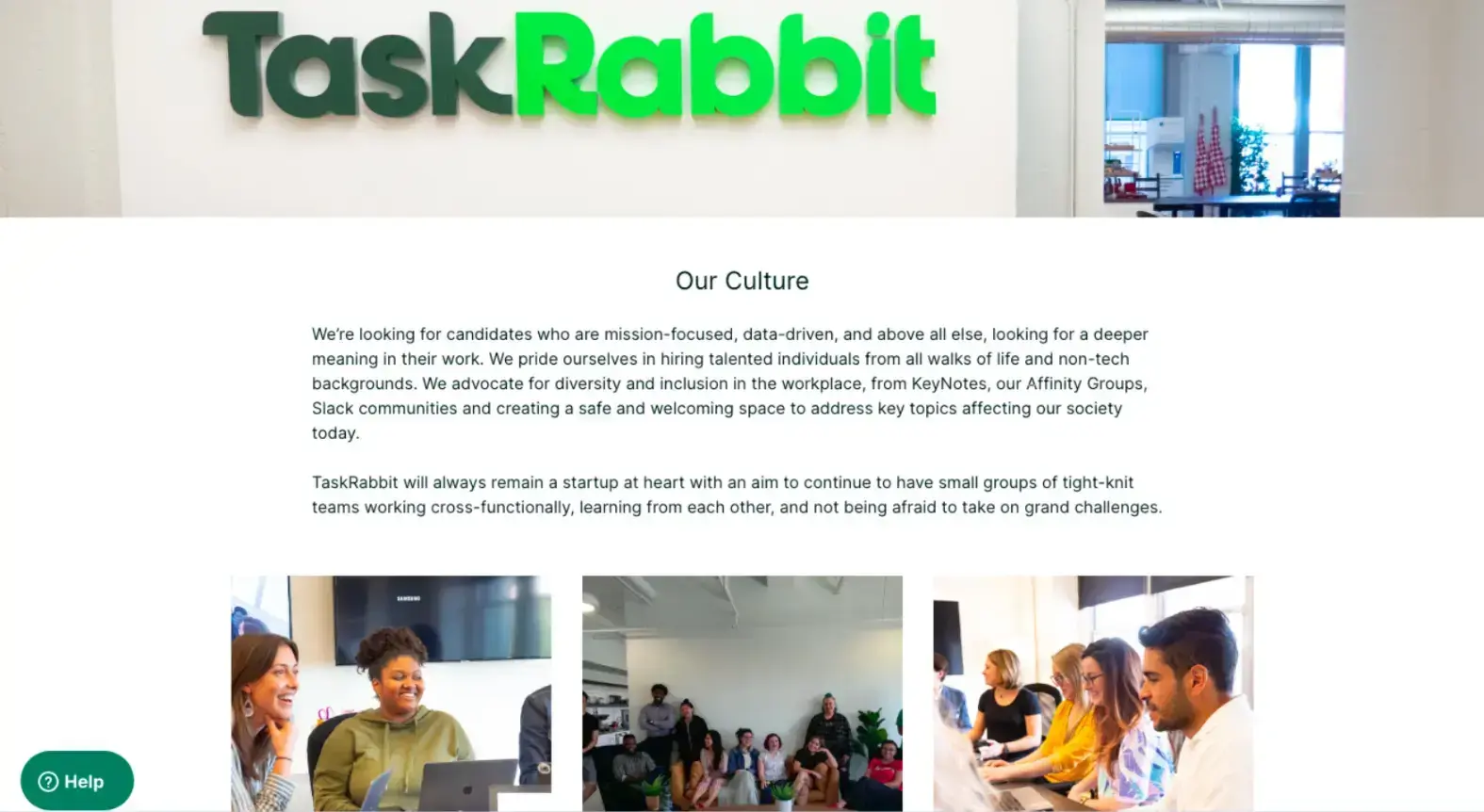
-
Search engine optimization (SEO)
Lastly, legal SEO is crucial for optimizing your website so it appears on the first page of search results. For example, a specialized SEO approach, like family law SEO, helps family law firms rank better on Google.
It involves the following practices:
-
- Keyword research – Finding and optimizing keywords based on search volume, intent, and relevance
- Link-building – Building authoritative backlinks
- Local SEO – Optimizing your website for local search if targeting specific regions
- Technical SEO – Improving site elements for better crawling and indexing
- Content optimization – Crafting compelling and high-quality legal content
Create a Legal Website That Converts
Investing in a website isn’t just about amplifying online presence. It’s also about establishing a platform that converts and embodies your legal expertise.
A well-crafted legal website is where your services, expertise, success stories, and values converge to form compelling narratives that resonate with potential clients, ultimately contributing to your firm’s lasting growth.


